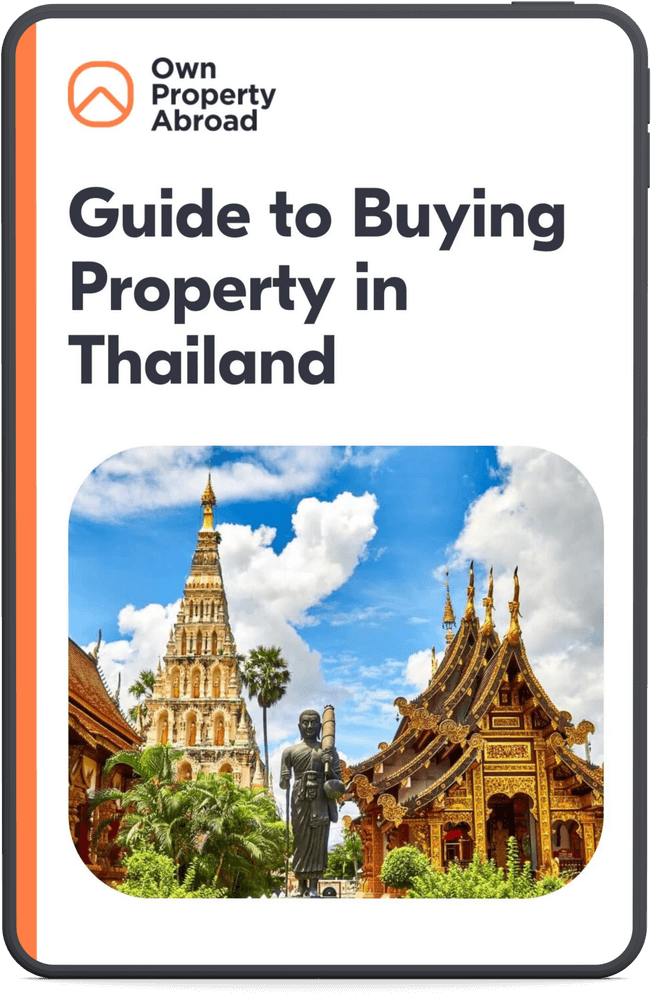Freehold vs leasehold in Thailand: What are the differences?
Freehold and leasehold are two types of property ownership in Thailand. Freehold ownership occurs when you purchase a property, while leasehold ownership is acquired through renting. Freehold ownership in Thailand provides absolute property rights, meaning nobody can question or challenge the freeholder’s rights, while a leasehold is established by a leasehold agreement that provides temporary rights to own and use a property.
Valuable insights and practical advice, distilled from years of expertise and real-world experience.


One way to differentiate freehold from leasehold in Thailand is the duration of property possession. A freeholder can possess a property for a lifetime, while a leaseholder can only occupy it for a limited period with terms that are a maximum of 30 years. When choosing between freehold and leasehold in Thailand, you need to consider that foreigners are not allowed to own land due to the restrictions imposed by the Land Code Act. Due to this restriction, leasehold becomes a more viable and preferred option.
However, obtaining freehold ownership in Thailand as a foreigner is also possible by purchasing condominiums, as the Condominium Act allows foreign ownership up to a maximum of 49% of the total unit space in a condominium project. Furthermore, Thai freehold ownership of land is feasible by establishing a limited company and purchasing land under the company’s name.
Below are the pros and cons of freehold versus leasehold in Thailand to help you better understand and compare the two.
Pros of freehold ownership
Freehold property ownership in Thailand has several benefits:
- Private and indefinite ownership: A freeholder owns a property privately for an indefinite duration. This private property can be taken only with a competent authority (government) or for public use and always with fair payment to the owner.
- Bundle of rights: A freehold title deed will grant a freeholder “bundle of rights” to the property, which includes:
- Right of possession: The freeholder is the legal owner of the property and has the right to possess and occupy it.
- Right of control: The freeholder can use the property by any legal means.
- Right of exclusion: The freeholder can limit who may enter the property, including the easements and unreasonable searches.
- Right of enjoyment: The freeholder can enjoy the lawful benefits of the property.
- Right of disposition: The freeholder can permanently or temporarily transfer property ownership to another party.
Cons of freehold ownership
The most important disadvantages of freehold ownership are:
- Tax liabilities: A freeholder is liable to pay property taxes for private property ownership in Thailand.
- Maintenance and upkeep: The freeholder is responsible for the maintenance and upkeep of the property and the cost associated with it.
Pros of leasehold ownership
The benefits of leasehold property ownership in Thailand include:
- Leasehold property rights: The leasehold agreement between a lessor and a lessee will result in property rights for the leaseholder as follows:
- Right of possession: Limited by the leasehold agreement, the lessee has a right to possess and occupy the property for a period granted in the agreement.
- Right of use: The leaseholder is free to use the property for the purpose indicated in the leasehold agreement.
- Right of enjoyment: The leaseholder has the right to enjoy the property’s benefits within the parameters of the leasehold agreement.
- Right to renewal or extension: Depending on the contract stipulation, the leaseholder can negotiate with the landlord to renew the contract or extend the lease term.
- Reduced tax payments: The leaseholder pays “rent” to the landlord, so the leaseholder is not required to pay property tax on the land because they are not the owner.
- Leasehold properties are cheaper than buying a property with ownership rights: They are sold at a lower cost, and monthly rent-due payments are fixed, allowing efficient budget planning and expenditure forecasting.
Cons of leasehold ownership
The disadvantages of leasehold ownership in Thailand are:
- Subject to the restrictions of the leasehold agreement: The stipulations in the leasehold agreement bind a leaseholder’s property rights and decisions, and the landowner must consent to any activities on the property.
- Limited property rights: A leasehold agreement cannot bestow the “bundle of rights” of absolute property ownership. This agreement means that ownership will be restricted and limited.
Buy property in Thailand with Own Property Abroad
Are you looking to buy property in Thailand? Own Property Abroad is here to help you navigate a smooth and hassle-free property journey, whether you’re selling or buying real estate in Thailand. Our in-depth knowledge and experience in the local market allow us to guide you through legal requirements, find ideal properties, negotiate the best deals, and perform thorough due diligence.
With our expert team by your side, you won’t have to face the complexities of the Thai real estate market alone. We also specialize in advising on leasehold or freehold in Thailand, ensuring you make the best decision for your needs. For more information on how we can assist you, please leave your details below or email us at [email protected].
Valuable insights and practical advice, distilled from years of expertise and real-world experience.


Frequently Asked Questions (FAQs)
What is the difference between freehold and leasehold in Thailand?
The difference between freehold versus leasehold in Thailand is the rights of each holder. A freeholder possesses all absolute property rights to private property, while a leaseholder possesses limited rights under a leasehold agreement.
Is it better to buy leasehold or freehold property in Thailand?
Whether to buy leasehold or freehold property in Thailand depends on your needs. Leasehold is ideal for foreigners who prefer renting, while freehold suits those wanting full ownership, particularly in condominiums.
Can foreigners buy freehold property in Thailand?
Yes, foreigners can buy freehold property in Thailand, specifically up to 49% of the units in a condominium project. However, they cannot own land directly.
Is leasehold cheaper than freehold?
Yes, leaseholds are generally cheaper than freeholds. Leaseholders pay fixed rent, while freehold owners face higher costs due to property appreciation, maintenance, and taxes.




